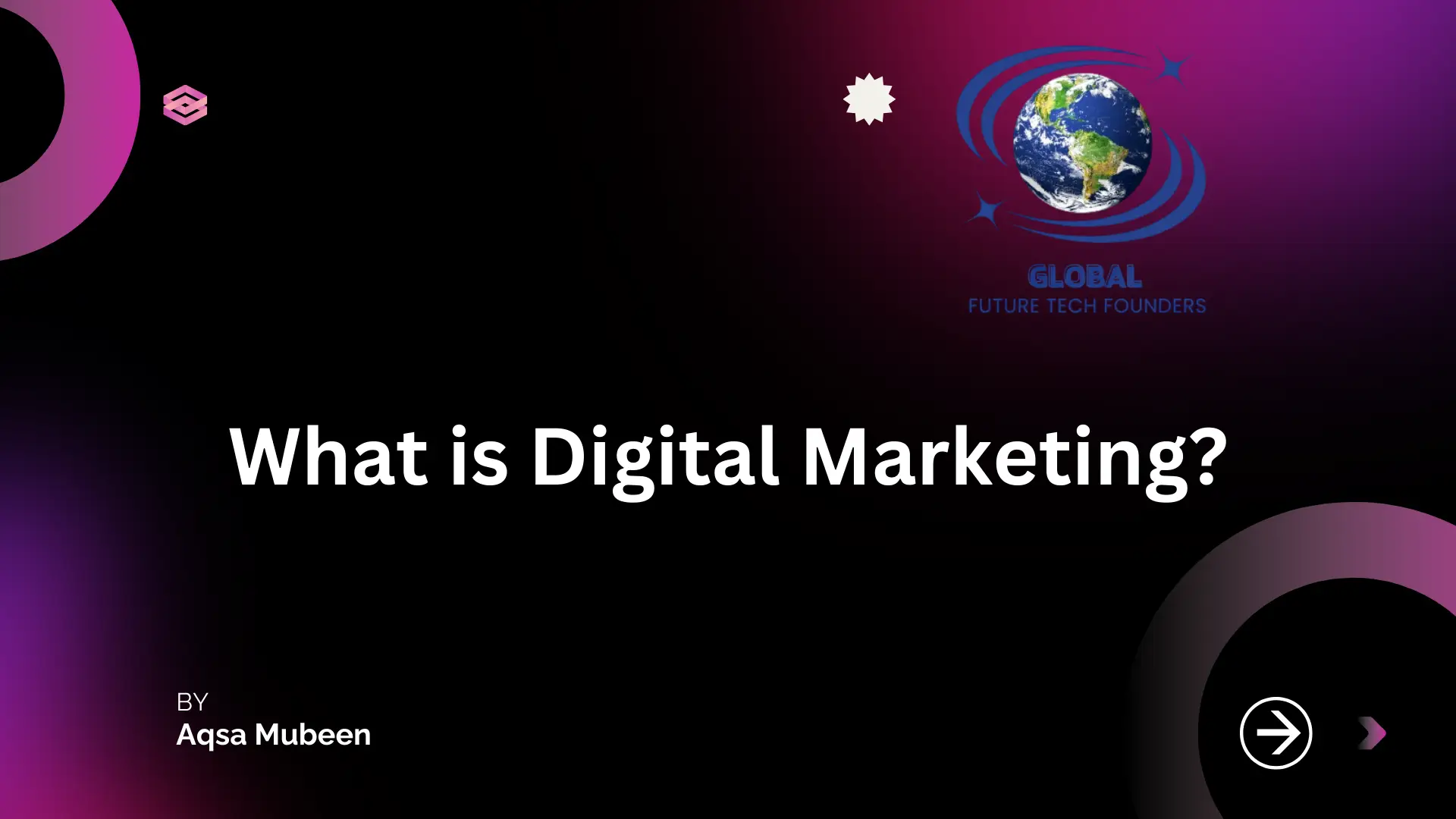What is Digital Marketing Definition?
Digital marketing has emerged as the key to corporate success in the modern, technologically advanced world. Businesses in a variety of sectors use digital channels to engage with their customers, foster brand loyalty, and increase sales. However, what is digital marketing precisely, and how can companies effectively use it to their advantage? We’ll delve deeply into the realm of digital marketing in this extensive blog article, examining important tactics, new developments, and the significance of preserving a human touch in an increasingly automated environment.
A good starting point for comprehending the fundamentals of digital marketing is the blog post “What is Digital Marketing: Key Strategies for Reaching Your Audience” from the International Institute for Management Development (IMD). We’ll build on that by extending the conversation to incorporate practical advice, real-world examples, and a human-centric to help you craft a winning digital marketing strategy.
What is Digital Marketing?
The use of digital platforms, channels, and technology to advertise goods, services, or brands is known as digital marketing. Digital marketing functions online, in contrast to traditional marketing, which depends on offline strategies like TV commercials, billboards, and print advertisements. This covers websites, mobile apps, email, social media, and search engines.
Reaching a worldwide audience and enabling hyper-targeted campaigns are two of digital marketing’s greatest features. By customizing their messaging to target particular demographics, behaviors, and interests, businesses can make sure that the appropriate people see their marketing efforts at the right moment.
Key Digital Marketing Strategies
The IMD blog post discusses several important digital marketing methods that are necessary for effectively targeting specific audiences. Let’s take a closer look at these strategies and see how they may be put into reality.
1. Search Engine Optimization (SEO)
Optimizing your content and website to rank higher in search engine results pages (SERPs) is known as SEO. By increasing the visibility of your website to users looking for pertinent keywords, the objective is to boost organic (non-paid) traffic.
- On-Page SEO: This entails adding relevant keywords, meta descriptions, and excellent content to each web page. A blog post about “best digital marketing strategies,” for instance, ought to organically incorporate pertinent keywords into the body of the text.
- Off-page SEO: This focuses on increasing the authority of your website by constructing backlinks from reliable websites. Social media promotion, influencer partnerships, and guest blogging are all successful strategies.
- Technical SEO: Both user experience and search engine rankings depend on your website being quick, responsive, and simple to use.
According to Me: Even though SEO is very technical, it’s crucial to keep in mind that you’re optimizing for actual people. Instead of merely stuffing your content with keywords, write content that addresses the issues and queries of your audience.
2. Content Marketing
In the realm of digital marketing, content is king. In addition to drawing in visitors, valuable, high-quality content also maintains their interest and motivates them to act.
- Blog Posts: You can position your brand as an authority in your industry by consistently posting interesting and educational blog entries.
- Videos: You can position your brand as an authority in your industry by consistently posting interesting and educational blog entries.
- E-books and Whitepapers: Because users frequently exchange their contact information for downloadable resources, these are great for generating leads.
Tip: One of the most effective ways to engage your audience is through storytelling. To establish an emotional bond, share real-world examples, client success stories, or behind-the-scenes looks at your company.
3. Social Media Marketing
Social media platforms like Facebook, Instagram, LinkedIn, and TikTok offer unparalleled opportunities to connect with your audience on a personal level.
- Choosing a Platform: Not every platform is made equally. Select the ones with the highest activity levels of your target demographic. For instance, Instagram works well for firms with a strong visual component, whereas LinkedIn is best for business-to-business marketing.
- Engagement: To establish a rapport with your followers, reply to their messages, comments, and mentions.
- Paid Advertising: Social media advertisements are a great way to reach your ideal audience because they let you target particular demographics, interests, and behaviors.
Tip: Social media is inherently social. Don’t just broadcast your message—engage in conversations, ask questions, and show appreciation for your followers’ support.
4. Email Marketing In Digital Marketing
One of the best digital marketing tactics is still email marketing, which provides a direct channel of engagement with your target audience.
- Personalization: Refer to the recipient by name and adjust the information according to their tastes and actions.
- Automation: Create automatic email sequences for follow-ups after a transaction, welcome emails, and reminders for abandoned carts.
- Segmentation: To send more focused communications, divide your email list into groups according to criteria like location, past purchases, or degree of participation.
Tip: Compose emails as though you were corresponding with a buddy. Speak informally and concentrate on adding value rather than just making sales.
5. Pay-Per-Click Advertising (PPC) In Digital Marketing
PPC advertising allows you to place ads on search engines and social media platforms, paying only when someone clicks on your ad.
- Google Ads: These display at the top of search engine results pages and can generate highly targeted traffic to your website.
- Social Media Ads: Platforms like Facebook and Instagram offer advanced targeting options to ensure your ads reach the right audience.
- Retargeting: To re-engage visitors to your website who have already visited but did not convert, utilize retargeting advertisements.
Tip: While PPC is a paid tactic, it’s crucial to develop ads that feel natural and relevant. Steer clear of too promotional language and concentrate on how your service or product might address a need.
Emerging Trends in Digital Marketing 2025
The digital marketing landscape is constantly evolving, and staying ahead of the curve is essential for success. Here are some of the latest trends to watch:
1. Artificial Intelligence (AI) and Machine Learning
AI is transforming digital marketing by making automation, predictive analytics, and hyper-personalization possible. Chatbots, for instance, can offer immediate customer service, while AI-powered solutions can examine data to spot patterns and improve advertising.
Tip: It’s crucial to strike a balance even if AI can expedite procedures. Don’t forget the human factor when using AI to improve your marketing efforts.
2. Voice Search Optimization In Digital Marketing
With the development of smart speakers and voice assistants, enhancing for voice look is becoming growing important. This involves using natural language and long-tail keywords to align with the way people speak.
Tip: Think about the intent behind voice searches. People using voice search are often looking for quick, conversational responses, so tailor your content in accordance.
3. Video Marketing
The digital world is still dominated by video, with sites like YouTube and TikTok setting the standard. Live streaming, interactive material, and short-form videos are especially good at drawing viewers in.
Tip: Use video to convey the personality of your brand. Let your genuineness come through, whether it’s a fun challenge or an inside look at your company.
4. Sustainability and Ethical Marketing
Brands that put sustainability and social responsibility first are attracting more and more customers. You can differentiate yourself from the competition by emphasizing your dedication to moral behavior.
Tip: Share anecdotes that illustrate your impact and be open and honest about your efforts. Being genuine is essential to establishing trust.
The Importance of a Human-Centric Approach
It’s simple to overlook the human factor in the era of automation and data-driven marketing. But now more than ever, you need to establish real connections with your audience. Here’s how to maintain a human-centered approach to your digital marketing strategy:
1. Give the customer experience priority
Every consumer encounter with your brand ought to be satisfying and unforgettable. Make every aspect of your business, from customer service to website design, smooth and pleasurable.
2. Pay Attention to Your Viewers
To learn about the requirements, preferences, and pain points of your audience, use surveys and social listening techniques. After that, adjust your marketing strategy to take use of these insights.
3. Be Authentic
Consumers of today are able to recognize inauthenticity quickly. In all of your conversations, be truthful, open, and loyal to your brand’s principles.
4. Be Empathic
Recognize that the individuals in your audience are actual people with actual feelings. Communicate with empathy, particularly when things are tough.
Conclusion
Although it involves more than just data and algorithms, digital marketing is a potent tool for connecting with and interacting with your target audience. You may build lasting relationships that promote success by fusing innovative tactics with a human-centered mindset. Always keep your audience at the center of your efforts, whether you’re using the newest trends, creating engaging content, or optimizing your website for search engines.
Understanding your customers and providing value at each touchpoint are essential components of successful digital marketing, as the IMD blog post highlights. By remaining knowledgeable, flexible, and genuine, you may successfully negotiate the always-shifting digital landscape and accomplish your business objectives.
According to my Recommendation: Building relationships is more important to digital marketing than simply making sales. Successful brands will be those who never lose sight of the human factor in a world where technology is always evolving. Therefore, when you improve your digital marketing approach, keep in mind to strike a balance between creativity and empathy, data and narrative, and automation and genuineness. Your viewers will appreciate it.

